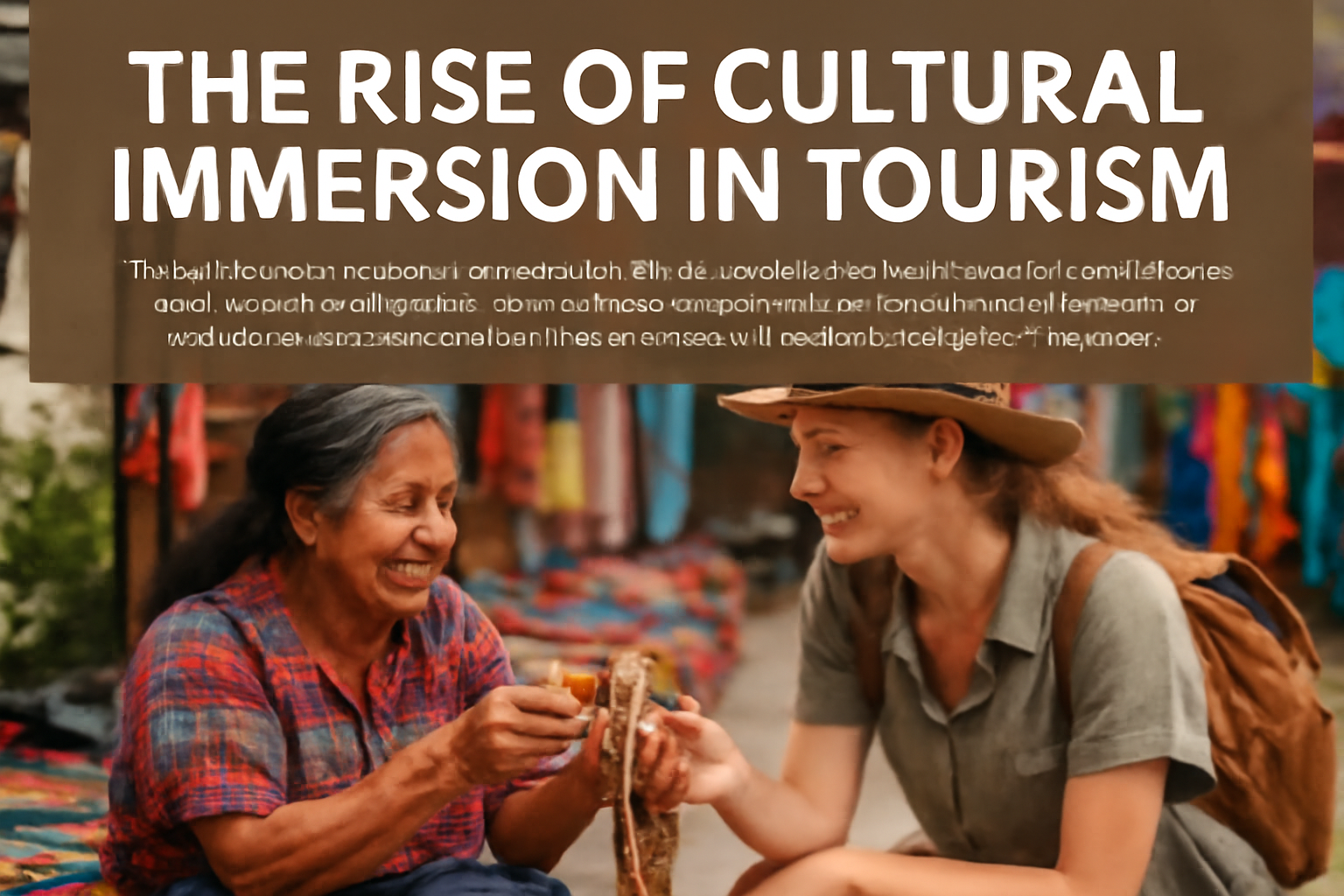Location
Mount Vernon, WA 98274
Location
Mount Vernon, WA 98274

As travelers seek deeper connections with the places they visit, cultural immersion is becoming a defining trend in tourism. This article explores how engaging with local traditions and communities enhances the travel experience while promoting sustainability.
In recent years, the travel industry has witnessed a significant shift towards experiences that allow travelers to engage more deeply with the cultures they visit. This trend, known as cultural immersion, emphasizes the importance of understanding local customs, traditions, and lifestyles, creating a more enriching travel experience.
Unlike traditional tourism, which often focuses on sightseeing and passive enjoyment, cultural immersion invites travelers to participate actively in the communities they explore. This can range from participating in local cooking classes, attending traditional festivals, or even volunteering for community projects. Such interactions not only foster meaningful connections but also contribute to the local economy and promote sustainable practices.
One exemplary destination embracing this trend is Japan, where travelers can spend time in rural villages learning the art of pottery from skilled artisans or participating in seasonal festivals that highlight the region’s history and culture. These experiences allow visitors to see beyond the typical tourist attractions and gain a deeper appreciation for the local way of life.
The benefits of cultural immersion extend beyond personal enrichment; they also help combat the adverse effects of mass tourism. By spreading visitors across diverse regions and encouraging engagement with local communities, this approach can alleviate pressure on popular tourist spots, reducing environmental strain and promoting a more sustainable model of tourism.
Additionally, cultural immersion encourages travelers to be more conscious of their impact on the destinations they visit. According to a recent survey by the Adventure Travel Trade Association, over 70% of travelers expressed a desire to engage in sustainable practices, such as supporting local businesses and respecting cultural heritage. This growing awareness among tourists is driving demand for experiences that prioritize ethical engagement and cultural sensitivity.
As we move further into the 21st century, the travel landscape will likely continue to evolve. The rise of remote work has also contributed to this shift, as more individuals seek to combine work and travel, allowing for longer stays and deeper cultural experiences. With the ability to work from anywhere, travelers can immerse themselves in local life, learning the language, customs, and even contributing to community initiatives.
In conclusion, cultural immersion is reshaping the travel industry, offering opportunities for personal growth while promoting sustainability and respect for local communities. As more travelers seek authentic experiences, this trend is set to redefine what it means to explore the world.